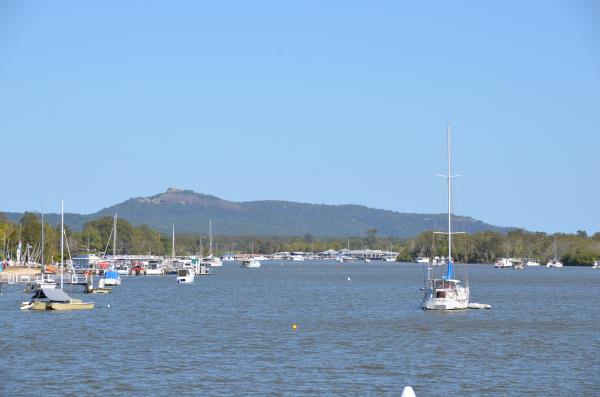By JOLENE OGLE
A LACK of rainfall and vegetation throughout south-east Queensland waterways is causing a decrease in fish, according to the latest Healthy Waterways report card.
Released annually, the Healthy Waterways report card scores the local region’s freshwater catchments and estuaries, with Noosa’s score usually between an A and B grade.
This year, most of the region’s freshwater waterways received lower scores, including Noosa’s freshwater score which dropped 0.02 per cent to a B grade.
Listed among the reasons for the decline in score was a decrease in fish.
The Healthy Waterways 2014 report card states the decline is a common issue across many of the 19 regions tested, with a lack of rainfall reducing the amount of water and habitats in streams.
A Healthy Waterways spokesperson said the score decline because of a decrease in fish was not due to over-fishing.
“Instead, a lack of rain particularly in Noosa has led to a lack of habitat,” the spokesperson said.
The decline in waterway health comes as submissions close for the Department of Fisheries review of commercial fishing.
Noosa Council made a submission to the department which recommended a ban on commercial fishing at Noosa North Shore to allow fish stocks to renew.
But councillors voted down a request to make a last-minute amendment to the submission and add a request to investigate the long-term sustainability of Noosa River and lakes system.
Noosa Council Mayor Noel Playford said in an earlier press release there was “no room for complacency” when it came to looking after Noosa River.
“We can always do better when it comes to caring for the river,” he said.
“Addressing riverbank erosion and improving riparian vegetation are important issues, as is ensuring effluent from vessels is responsibly managed and not allowed to enter waterways.”
Mayor Playford said everyone had a role to play in helping protect Noosa’s waterways.
“Examples include fishing responsibly, ensuring any litter – such as plastic bags and drink bottles – is placed in bins and not permitted to enter the river,” he said.
“Chemicals should never be disposed of down the drain and, if boating, ensure that you responsibly dispose of effluent to prevent it from polluting the waterway, while property owners should take steps to prevent sediment from entering creeks and waterways.”






